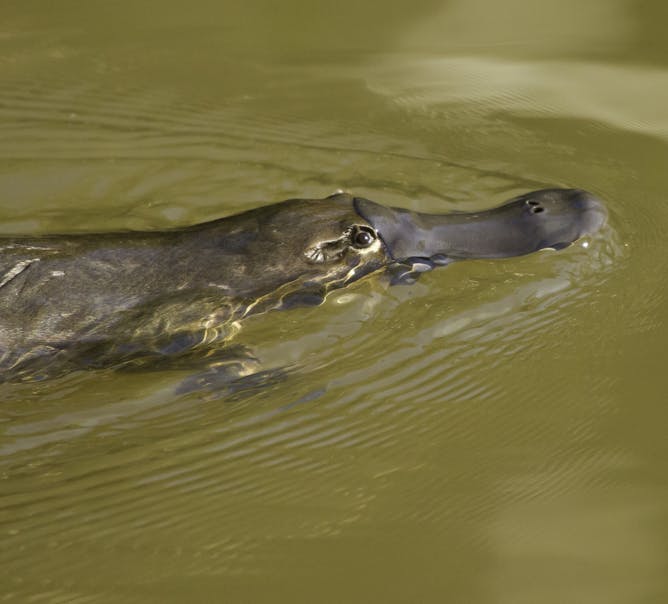|
|
|
Editor's note
|
|
Retirees do well in Australia. So well, that according to a major new report from the Grattan Institute, most feel more financially secure than they did while working. Many earn more than they did while working. The findings contrasts sharply with the narrative pushed by the superannuation industry and both sides of politics who (on paper at least) are committed to increasing compulsory super contributions from 9.5% of salary to 12%.
Why does the Grattan Institute believe it is right and the super industry is wrong? Much of it has to do with what Grattan finds is the industry’s false assumption that retirees increase, rather than decrease, their spending as they age.
And new research out today has found that pharmaceuticals from wastewater are making their way into aquatic bugs and spiders living in and next to Melbourne’s creeks. Erinn Richmond and Mike Grace write that they found pharmaceuticals in every bug they sampled - over 190 invertebrates - from six different streams. There were 69 different drugs in the bugs, including anti-depressants, an anti-fungal, and non-steroidal anti-inflamatories. In
fact, they calculated that animals that eat these aquatic invertebrates, such as platypus, would be receiving half the daily recommended dose of anti-depressants for humans.
|
Peter Martin
Editor, Business and Economy
|

|
|
Top story
|

Most retirees are financially secure. Many earn more than they did while working, the Grattan Institute finds.
Shutterstock
Brendan Coates, Grattan Institute; John Daley, Grattan Institute; Jonathan Nolan, Grattan Institute
Compelling Australians to put even more into super runs the risk of giving them a better standard of living in retirement than they had while working.
|

Thanks to their consumption of invertebrates, Melbourne platypus likely receive half the recommended human dose of anti-depressants every day.
Denise Illing
Erinn Richmond, Monash University; Mike Grace, Monash University
Pharmaceuticals were found in every invertebrate sampled from six Melbourne streams - including a waterway in a national park.
|
Environment + Energy
|
-
Jessica C Lai, Victoria University of Wellington
While industry bodies fight over who can claim that their mānuka honey is authentic, Māori interests are often left out of the debate.
|
|
Politics + Society
|
-
Leah Ruppanner, University of Melbourne
Universal low-cost childcare and workplace flexibility will help mothers return to the workplace and are important investments in the Australian workforce.
|
|
Cities
|
-
Peter Newton, Swinburne University of Technology; Christina Ting, Swinburne University of Technology; Wendy Stone, Swinburne University of Technology
Australian cities are world-leading – in the worst sense – for resource use and greenhouse emissions. China-born residents have embraced these consumption patterns, which is bad news for the planet.
|
|
Arts + Culture
|
-
Kevin Brophy, University of Melbourne
Malouf's late return to poetry seems to bring him back in a new way to steadying poems that do justice to the open gaze, the sly wit, the swift imagination and the poise he has in spades.
|
|
Health + Medicine
|
-
Julaine Allan, Charles Sturt University
Quetiapine is an antipsychotic drug to treat severe mental illness, but it makes people feel sleepy, so has also been used as a sleeping pill – by prescription and illicitly.
|
|
Science + Technology
|
-
Ben Hoffman, CSIRO
The ants were a threat to many native species on Lord Howe Island. They were also a pest if they got into your home.
-
Peta King, South Australian Health & Medical Research Institute
Once upon a time, a group of disheartened scientists found their tearoom bereft of teaspoons. They explored the problem with a longitudinal study design
|
|
| |
Featured jobs
|

|
University of Melbourne — Parkville, Victoria
|

|
Massey University — Palmerston North, Manawatu-Wanganui
|

|
University of Western Australia — Perth, Western Australia
|

|
La Trobe University — Melbourne, Victoria
|
|
|
|
| |
| |
| |

|
| |
| |
| |
Featured events
|

|
Clemenger Auditorium, National Gallery of Victoria, 180 St Kilda Road, Southbank, Melbourne, Victoria, 3000, Australia — La Trobe University
|

|
Melbourne Convention and Exhibition Centre (MCEC) 1 Convention Centre Place , South Wharf, Victoria, 3000, Australia — The Conversation
|

|
19 Ancora Imparo Way, Clayton campus, Clayton, Victoria, 3800, Australia — Monash University
|

|
RACV City Club, 501 Bourke Street, Melbourne, Victoria, 3000, Australia — Monash University
|
|
|
|
| |
| |
| |
| |
| |
|
|
|
|
|
|
|